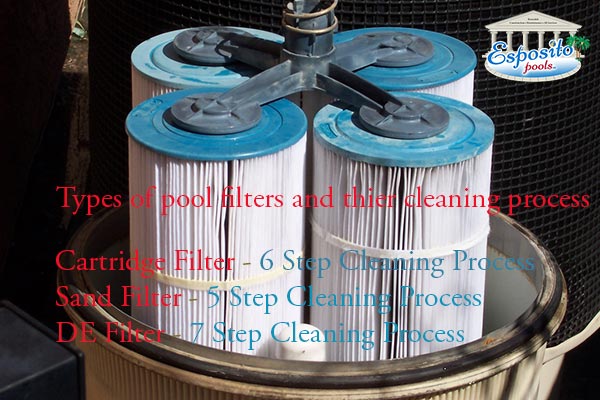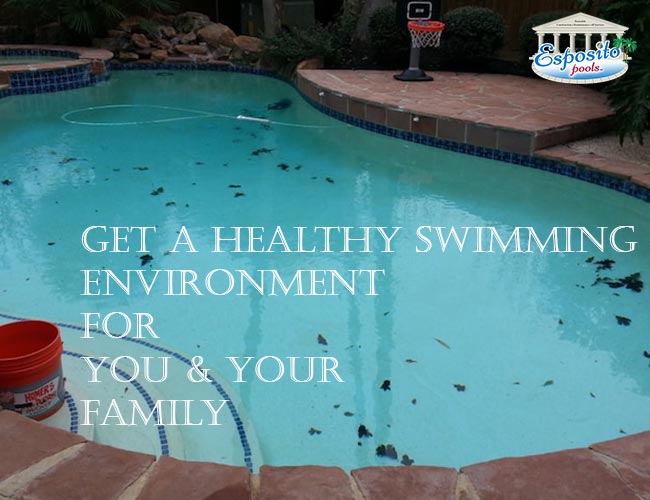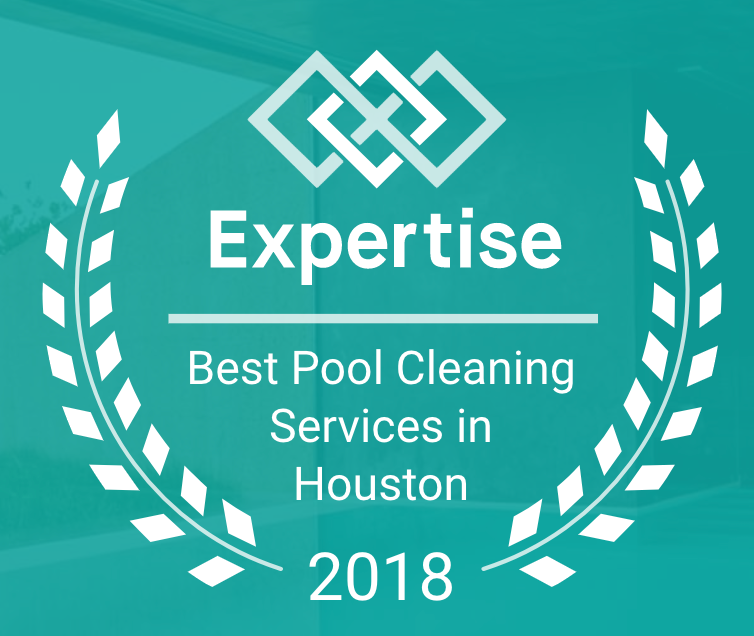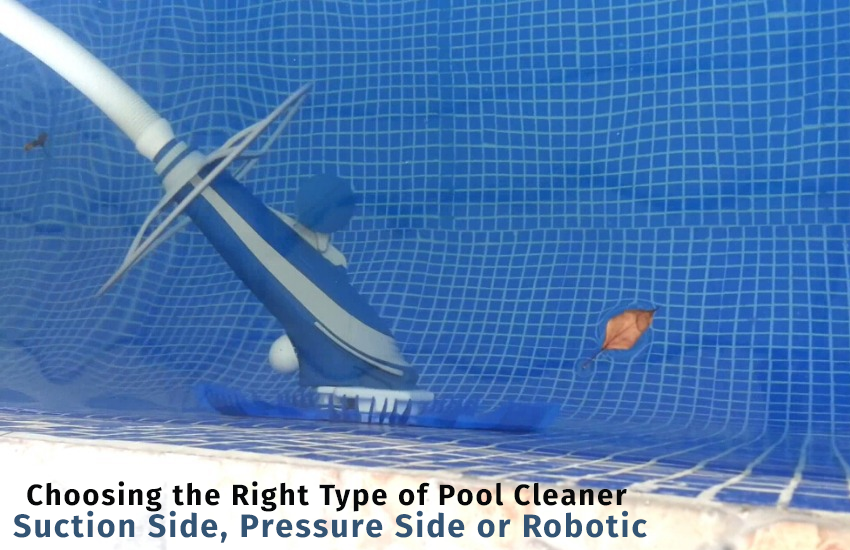Balancing pool water chemistry – it's really like a balancing act as you need to maintain the correct levels of different chemical components in the pool water. Your pool water keeps on constantly changing. From cosmetics to dirt or oil, anything that comes in contact with pool water will affect its chemistry. Pool cleaning and continuous filtration remove contaminants but they don't restore or balance the pool water. To chemically balance and sanitize water, you need to take care of the three important components – pH, total alkalinity and calcium hardness.
Adjusting alkalinity level
• Total alkalinity refers to how much of carbonates, bicarbonates, hydroxides, and other alkaline substances are present in the pool water.
• Pools should have a total alkalinity level of 100 ppm. Alkalinity level should be adjusted first, and then the pH.
• You need a test kit to determine the alkalinity of your swimming pool. If it shows low alkalinity you can raise it by the addition of a base such as sodium bicarbonate whereas high levels of alkalinity can be lowered by the addition of an acid.
Regulating pH level
• pH refers to the acidity or baseness of your pool water. The most desirable pH level is around 7.4 to 7.6 on a pH test kit's numeric scale.
• Keeping proper water pH levels is important for swimmers' comfort as well as essential for keeping your equipment and pool in good condition.
• If the results of your pH test show high pH level, you can reduce it by adding liquid hydrochloric acid and dry acid. If the pH is low, it can be increased with an alkali (sodium carbonate).
• To lower pH level, fill 3/4 of a bucket with water from the pool, add the above mentioned acid to the bucket and pour it slowly into the pool.
• To raise pH level, add sodium carbonate into the pool at the return jet sight. The powder gets dissolved into the water easily and you can re-test the pH level after 6-8 hours.
Balancing calcium hardness
• Having the right amount of calcium in pool water is crucial. The general range for calcium hardness levels is 200 to 400 ppm.
• First test your pool for calcium hardness and determine the ppm you're away (either on lower end or higher end) from the ideal hardness level.
• Calcium chloride can be used to increase water hardness for pools. Pour it directly into the water as per instructions on the product label. Wait for about 6 hours before testing hardness level again.
• To lower the calcium hardness, you may need to drain about one-fourth of your pool. Refill the pool with fresh water and wait for six hours for fresh and existing water to mix together. Then re-test your pool for calcium hardness.
Apart from these three important components of your pool water chemistry, you should also check and balance stabilizer level and total dissolved solids (TDS). Maintaining proper water quality and chemistry requires a lot of knowledge and efforts. It's better you hire a professional pool service company for the task! Esposito Pools, a leading pool maintenance, repair and replaster services company in Houston, has expert technicians who can help you maintain the correct water chemistry in your swimming pool. All you need to do is to enjoy your sparkling clean pool.
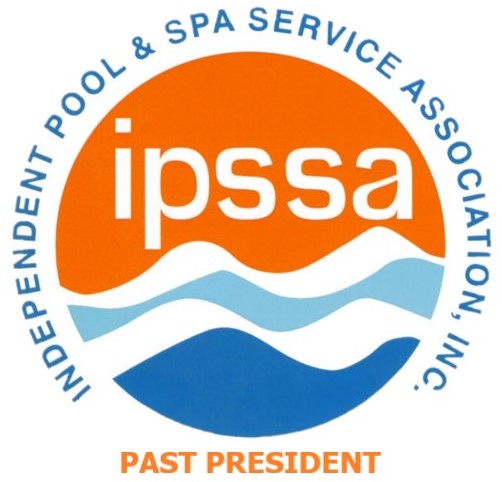
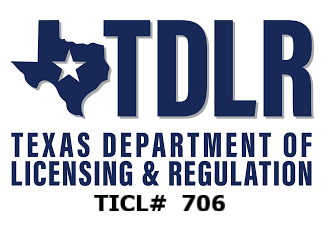
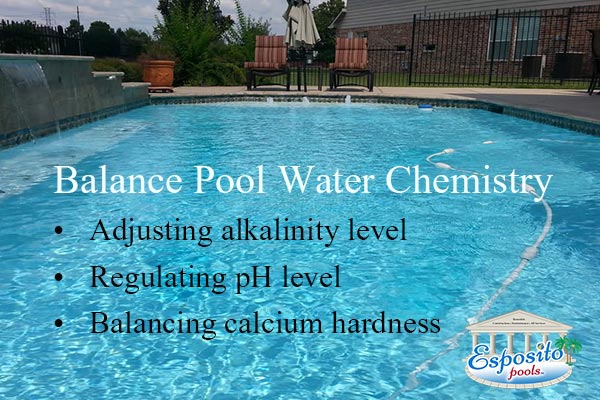
 0
0
